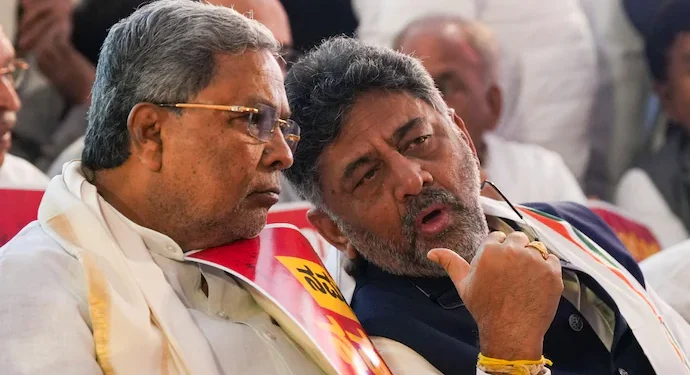LAGATAR24 DESK
Bengaluru: Congress’s welfare initiatives in Karnataka have sparked a heated debate on fiscal responsibility, with party leaders and BJP rivals clashing over whether the state can sustain these promises. Congress Chief Mallikarjun Kharge recently urged party units to make only “financially doable” promises, prompting a critique from Prime Minister Narendra Modi, who labeled the schemes as “unreal promises.” Karnataka Chief Minister Siddaramaiah and Deputy Chief Minister DK Shivakumar defended the state’s financial strength, denying claims of fiscal issues.
The state’s finances, however, tell a different story. With nearly ₹60,000 crore allocated to welfare schemes, Karnataka’s budget is under strain, limiting funds for other development projects, as acknowledged by Siddaramaiah’s economic advisor, Basavaraj Rayareddi. Additionally, a delegation from Karnataka recently approached Union Finance Minister Nirmala Sitharaman, seeking ₹5,400 crore to address budgetary shortfalls, underscoring Karnataka’s perceived neglect at the central level.
Karnataka’s Economic Slowdown and Rising Fiscal Deficit
Karnataka’s economy, once ahead of the national average, is now forecasted to grow at just 6.6% in 2023-24, below the national GDP growth rate of 7.3%. The state’s fiscal deficit has also grown, reaching 2.67% of GDP in 2023-24 and projected to rise to 2.95% by 2024-25, adding pressure on Karnataka’s financial sustainability.
Declining Tax Revenue and Reduced Central Grants
The state’s tax revenue has dropped significantly, from 7.54% of GDP in 2021-22 to 6.24% in 2023-24, further compounded by a decrease in central grants, which fell from 1.22% to 0.55% over the same period. The Karnataka Economic Survey also highlights a broader dip in central taxes and grants, reducing the revenue base available for critical investments.
Rising Liabilities and Declining FDI
Projected liabilities, now at 22.6% of GDP, are anticipated to increase to 23.97% by 2027-28, while Foreign Direct Investment (FDI) inflows have steadily dropped from $22 billion in 2021-22 to $6.57 billion in 2023-24, with investors increasingly favoring Gujarat over Karnataka.
With growing concerns about Karnataka’s fiscal health, it remains to be seen how the state will balance its ambitious welfare agenda against the need for sustainable economic growth.







